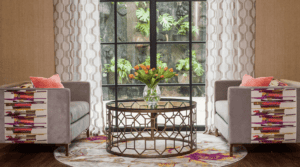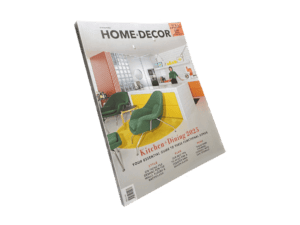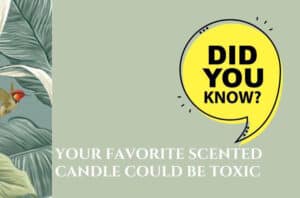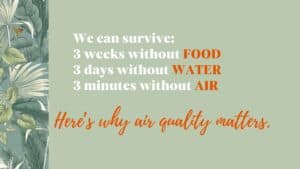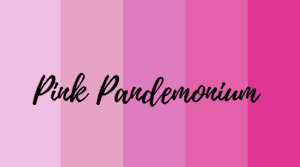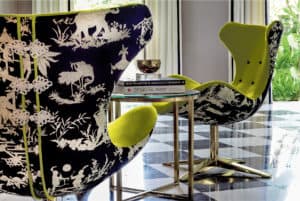Our homes should be a safe haven. But today, toxic air particles are all over our homes. It’s a shocking fact, but indoor air is typically between 2 to 5 times more polluted than the air outside. Most Singaporeans spend over 90 percent of their time indoors, so chances are we are exposed to bad air.
Allergies like itchy eyes and rashes are bad enough, but over time, polluted air can cause far more serious health issues like cancer, heart disease, and infertility. Air pollution affects brain development in kids, accelerates brain degeneration in seniors, and even affects our mood and mental health.
Singapore is drafting new rules to improve indoor air, which are expected to come into force in a couple of years. In the meantime, there are some simple things we can do to protect our health. First, we need to understand where these toxins come from.
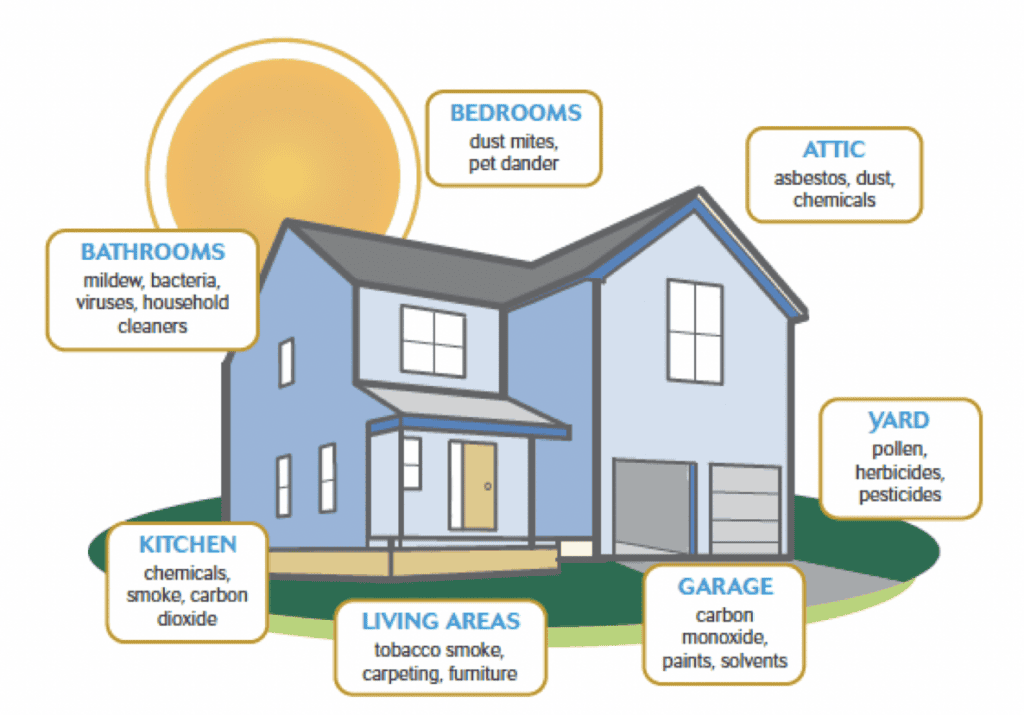
Every time we come home, we bring in chemicals, bacteria, heavy metals, and other toxins. There are over half a million bacteria on the soles of the average pair of shoes! So simply enforcing a no-shoes policy is an easy, no-cost way to start detoxifying your home.
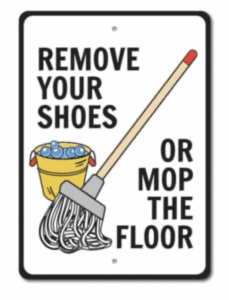
I found this poster on eBay, and it made me chuckle… To protect ourselves from pollutants, we can remove our shoes or mop the floor!
But wait… what will we use to mop the floor?
It may surprise you to learn that the cleaning solutions we use are a major source of toxins. So, when we think we are cleaning our homes, we may, in fact, be bringing poisons in!
I am not just talking about obvious chemical cleaners like bleach. Most washing-up liquids and laundry detergents, even personal care products like shampoo and body lotions, contain chemicals that pollute our air and disrupt our hormones. Switching to natural and fragrance-free cleaning and personal care solutions is a simple hack that will make an instant difference.
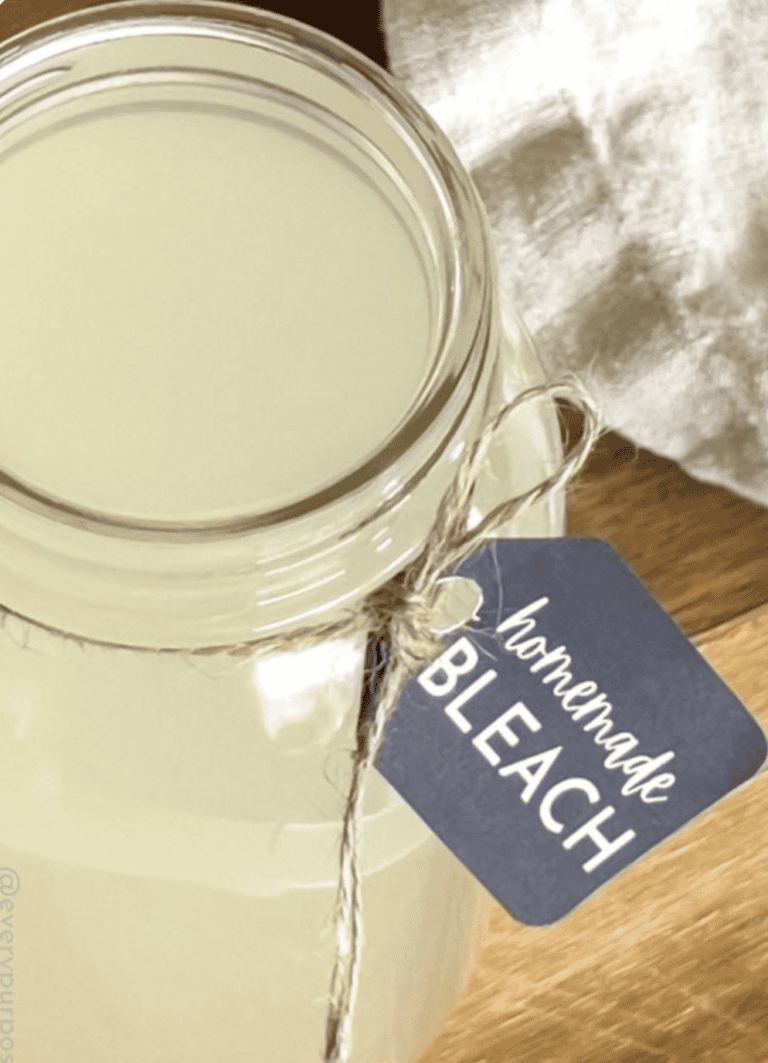
Those air fresheners that you hang in your shoe cabinets and even the scented candles you buy can often be sources of toxic chemicals. Many candles are made of paraffin wax; check that the ones you buy are beeswax or switch to essential oils to bring natural and healthy fragrance into your home. If the scent isn’t from essential oils or herbs like cloves and cinnamon, chances are it is full of chemicals that are causing you harm.
Many of the building materials used in our homes, from the paint on our ceilings to the sealants on our floors as well as the foam in our sofas and the fire retardants on our mattresses, will leach chemicals into the air for years. Our modern buildings are designed to be as airtight as possible, so we are effectively sealing ourselves in with these chemicals.
Even a couple of people sleeping in a poorly ventilated room overnight can lead to a build-up of CO2 to unhealthy levels. We need to exchange stale air with clean, fresh air daily. I have air purifiers in the rooms I use most, and making sure we open windows and regularly bring fresh air in is a simple and cheap way to improve our indoor air.
Click here to check Nikki’s blog for Top Tips for your Best Rest Ever.
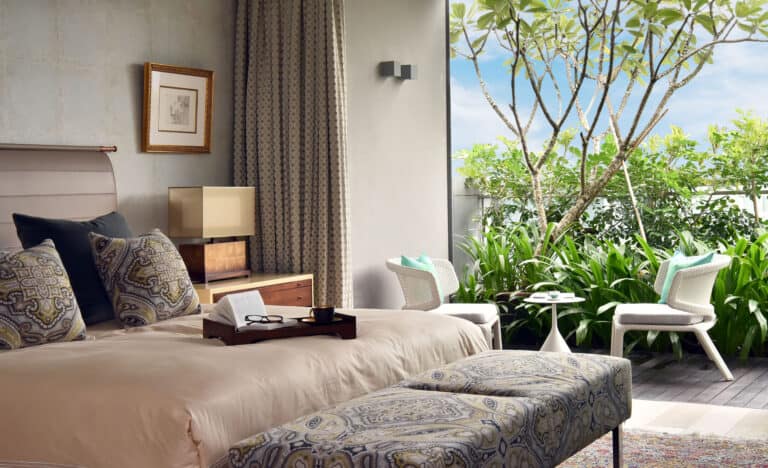
Another big source of indoor pollutants is cooking, and I am not just talking about heavy wok frying. In a kitchen without ventilation, even boiling pasta and making some simple tomato sauce can raise pollution levels above the WHO-recommended levels. A cooker hood that extracts to the outside may just be one of the most important purchases in your home!
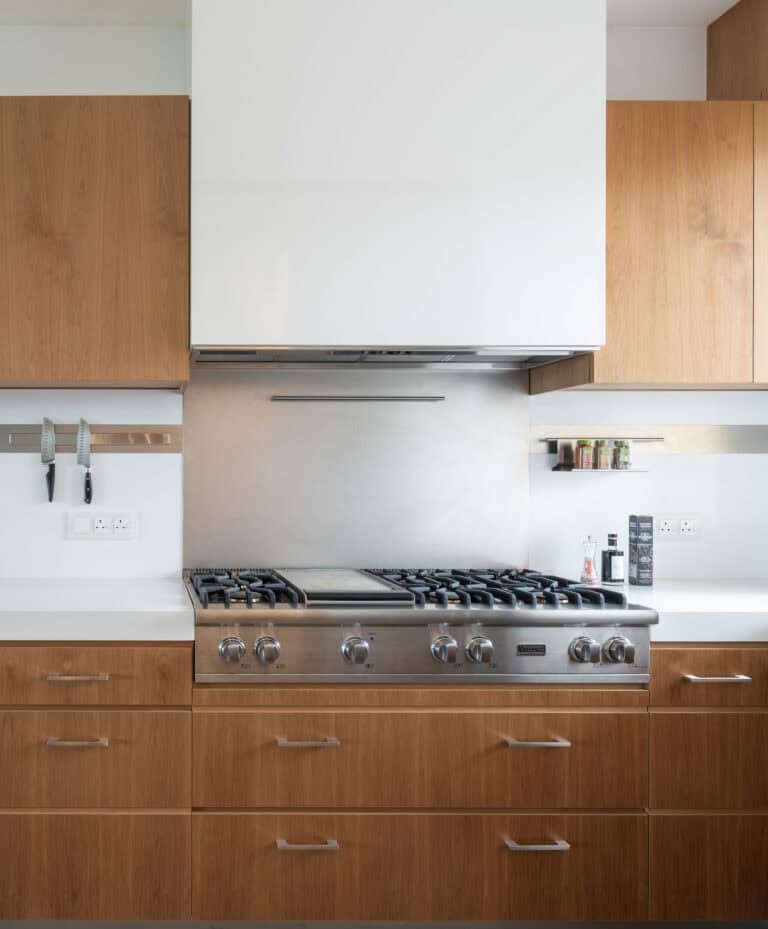
It is also important to get rid of moisture, as this will foster mold growth. Mold is a serious health problem that can aggravate asthma and even lead to organ damage and cause dementia-like symptoms. In a humid climate like Singapore, it is important that we check regularly for mold, especially in wet areas like bathrooms.
Simply opening a window after a shower can help, or using a dehumidifier in rooms with little ventilation can make a real difference. Believe it or not, some plants, like the Peace Lily, can help absorb the humidity from the air.
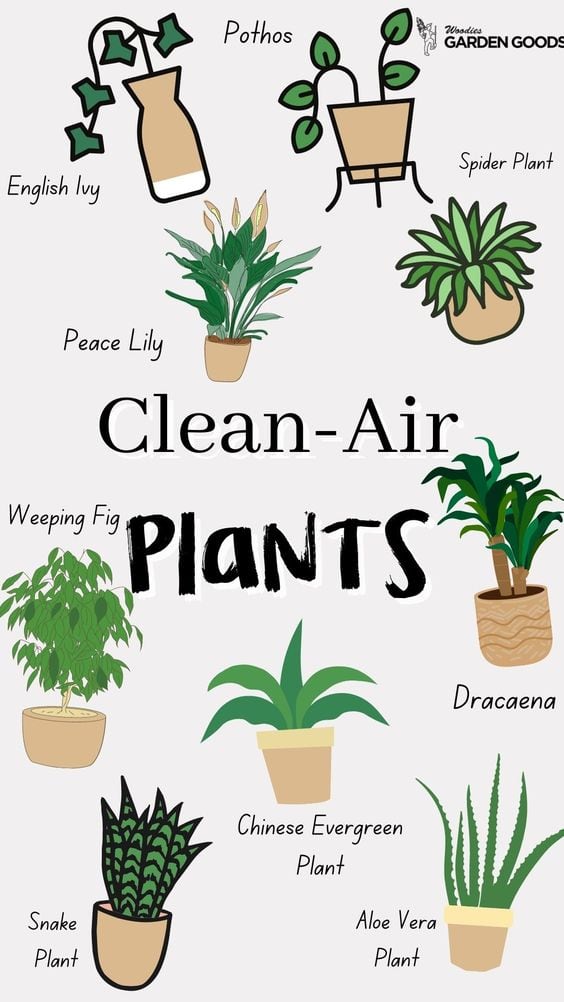
In fact, there are some plants like the snake plant, spider plant, and ficus that absorb toxins from the air. NASA sent plants into space to ensure that astronauts had better quality air in the space stations.
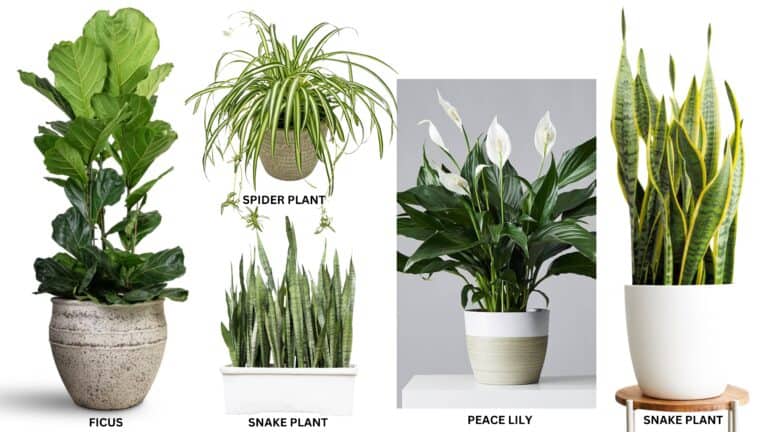
I know it’s boring, but regular dusting and vacuuming are important too. Toxins bind to dust, so getting rid of dust means getting those toxins out too.
The good news is that most of these suggestions are simple and low-cost ideas that will improve the quality of air in our homes and protect our families for a happier and healthier life.

